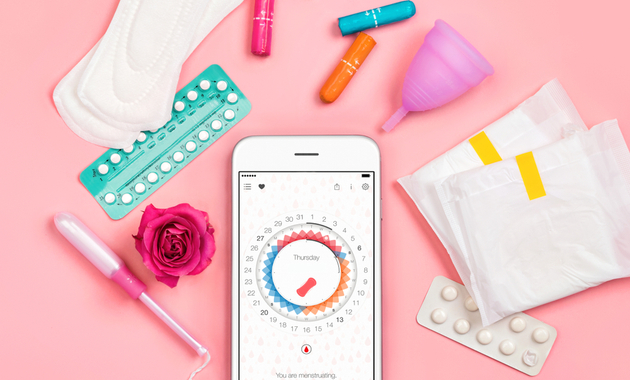Menstruation is a natural process. Young girls start menstruating at the age of 12-15 years due to fluctuations in hormone levels in their bodies brought about by the beginning of puberty. It brings about many changes in the bodies of women. There are monthly cycles of 28 days or so, which ultimately ends in menopause at the age of 45 to 50 years.
Society, especially in and around Asia, lacks much-needed awareness regarding menstruation in women. To add to this, there are plenty of ridiculous taboos and myths associated with the word. A lack of knowledge and awareness have given rise to these taboos which have often proved harmful and dangerous to women.
Equality of opportunity and social upliftment of women has been the result of decades of struggle. However, our patriarchal society still finds ways to shame and denigrate women by inventing notions of purity and impurity associated with menstruation. There are many discriminatory social codes that are forced upon women. For example, menstruating women cannot enter a temple or a kitchen, cannot touch a pickle jar as it may turn foul, cannot pray, or in some places cannot live under the same roof as other family members for 7 days.
Such taboos and myths have led to a dangerous lack of proper knowledge about puberty, menstruation, and reproductive health among women themselves.
Looking At Taboos From Historical Angles
Recently, a robust campaign was carried out by women activists to end the ban on women’s entry into the Shani Shingnapur temple in India. A crowd of 350 women was stopped and denied entry by the temple administration and the police. However, eventually, these activists were successful in breaking with a 400 hundred year-old tradition. An identical ban existed in Kerala’s Sabarimala temple, where females between the menstruating age, i.e. between the age of 10 and 50 years, weren’t granted access for being “unwell” during their periods.
A defense of these restrictions may be found in mythology. According to Hindu shastras, menstruating females are inauspicious due to a curse imposed on them in ancient times. The Mahabharata elucidates the story of Indra who kills Vritra, an infamous demon. However, Vritra happened to be Brahmin, and to murder a Brahmin was a sin. To eliminate this sin, Indra distributed it among the four elements: Earth, Ocean, Tress and Women. Monthly bleeding is the manifestation of that sin, and that’s why women are thought of as impure.
Such cultural norms have attached the stigma of Untouchability onto women which has hampered their health and social-economic development.
A Statistical Overview

The school drop-out rate for girls in India is more than 30%, since they start menstruating. In the absence of a gender-friendly environment and good infrastructure, women do not enjoy the right to privacy. Lack of decent toilets, sanitary napkin vending machines, and well-structured sewage systems impact their health as well as emotional stability.
Over 70% of women shy away from buying sanitary napkins and end up using pieces of cloth, ash, dry leaves, or newspapers to support blood absorption. These unhygienic techniques expose them to infection.
Future Outlook To Curb Stigma
Girls lack awareness about menstruation, as parents shy away from talking about it openly to their daughter in Asian societies. Inadequate sex education in schools do not help either. Shame and stigma prevents an open and healthy discussion.
We as a society must endeavor to normalize the topic of menstruation. The sanitation measures that should be adopted by girls for their health and well-being have to be loudly voiced out. Schools need to construct proper toilets and sanitary napkin vending machines. This will ensure that girls and female teachers no longer have to miss school when menstruating. Seminars and workshops on menstrual hygiene need to be conducted in school to dispel taboos and myths. Menstruation is not an “illness” and should not be regarded as one.
It is important to spread awareness and eliminate taboos and myths among both genders, to help men become more sensitive towards the need of women in their family and outside. Women should not feel the need to wrap up packets of sanitary napkins in newspapers or black plastic bags. Menstruation gives women the strength to be creators of life. It should be looked at in a positive light.
The 2018 decision by the Government which put a 12% tax on sanitary products met with protests by women all over the country. It was later withdrawn. Putting this aside, the Indian Government has also taken some positive initiatives. It approved a scheme to achieve reasonable standards of hygiene for menstruating women throughout the country by distributing low-cost sanitary napkins in rural areas under the National Rural Health Mission since 2010. The scheme seeks to help women from different backgrounds, so that they can afford sanitary pads and stop compromising on their health due to lack of funds.
A transformation in society is essential. The practice of taboos related to menstruation violates human rights. Menstrual flow, a sign of health and vitality in women, should not have to be shrouded in shame. Breaking the silence around menstruation is crucial for women and girls to succeed in their lives. Society must de-stigmatize menstrual flow. Women everywhere around the globe ought to be able to shake off their shame and think of their periods with pleasure.





